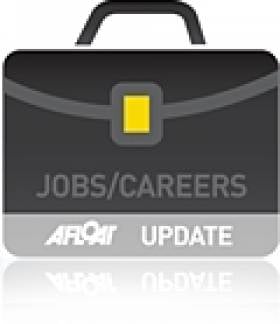Displaying items by tag: Dubois designed Clipper 68s
Knox-Johnston in Search for Ten Skippers
Sailing legend Sir Robin Knox-Johnston has launched his latest search for ten exceptional skippers to lead the internationally sponsored teams in the next edition of the Clipper Round the World Yacht Race. Clipper 11-12 will start form the UK in August next year and on board the matched fleet of stripped down 68-foot ocean racing yachts will be teams of novice crews representing all walks of life. The only professional sailor on board, the skipper has the challenge of turning such a diverse mix of people into a finely-honed racing team and it's one that professionals understand can deliver valuable benefits to their CV.
Sir Robin says, "Tackling this unique challenge, with its roaring gales and towering seas, as well as the frustrations of tricky calm spells, is no mean feat. The skippers we are looking for need to be up to the challenge of competitively racing our 68-foot yachts around the world with a non-professional crew onboard.
"The successful individuals must have the ability to draw the line between competitiveness and safety, whilst also motivating a sometimes exhausted crew into an enthusiastic and committed team.
"Leading a team of novice sailors in a race around the world is one of the hardest and most challenging jobs that any skipper could ever undertake and not everybody is up to this challenge."
Successful candidates will skipper one of the Dubois designed Clipper 68s and must also have an understanding of the commercial and media demands of this high-profile global event which can help launch a skipper's career.
The youngest skipper to win the Clipper Race was Alex Thomson who was just 25 when he led a team in the 1998 edition of the race. Twelve years later and Alex is getting his brand new IMOCA Open 60, Hugo Boss, ready for the double-handed Barcelona World Race which starts in December. The Gosport based sailor is widely considered to be one of the UK's top solo ocean racers and once he has returned for the Barcelona World Race he will be hoping to fulfil his dream by becoming the first non-Frenchman to win the Vendee Globe.
Other Clipper skippers who have gone on to secure sponsorship for solo ocean racing include Hannah Jenner who skippered in both the Clipper 07-08 and 09-10 Races. Hannah will be taking part in the Global Ocean Race next year, a 30,000-mile double-handed race around the world. Similarly Clipper 09-10 skipper, Chris Stanmore-Major is about to set off on his 2,500-mile qualifying passage for the VELUX 5 OCEANS race onboard his Open 60 Spartan having secured sponsorship to take part in what is deemed to be 'The Ultimate Solo Challenge'.
Interested skippers need to have the correct level of qualifications, including an MCA approved Ocean Yachtmaster. They need to be excellent sailors who put seamanship and safety first, have a proven track record in sail training and can demonstrate that they are strong team leaders.
Clipper Race Director Joff Bailey, skipper of New York in the Clipper 05-06 Race, says, "Being a race skipper in the Clipper Round the World Yacht Race was one of the hardest jobs I have ever done. However, the reward and satisfaction when you see the crew that you have trained react to situations as though they were full-time professionals and the look of achievement on their faces when they have crossed an ocean and finished a race, is the best high in the world."
If you think you are up for the challenge and have the right characteristics and experience contact Sir Robin by email on [email protected] to request an application form.





























































